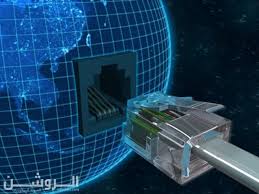Education programmes of job
Computer Engineering Control Engineering and Automation
IT Engineering

Nature of work
An IT infrastructure engineer, also known as IT implementation manager is a specialist who is usually in charge of the hardware aspects of a business network. The day to day activities of an infrastructure engineer vary according to the industry and company he/she works for. He/ she will work with managers to ensure budgetary expenses are established and upgrade equipment as necessary. If a network or server develops an error, it is his/her responsibility to diagnose the problem and fix it in a timely manner. An IT infrastructure engineer is in charge of handling the maintenance of not only the interoffice network communications, but also is responsible for maintaining the internet connection for external exchanges, so he/she plays a very important role in any business. He/she is responsible for evaluating and maintaining server performance. His/her responsibilities extend to the physical equipment as well. He/she is for the configuration and implementation of various computer systems, hardware, servers, desktops, tablets, access points, firewalls, printers, etc.He/she works with his or her company's customers from the time a customer purchases a product or service until the product or service is up and successfully running.
Environment of work
Working hours might be long because this role typically includes regular unsocial working hours to undertake planned security maintenance and upgrade work. In addition, much of the work is project-based, which may require extended hours at critical times and there is the possibility of being called out at any time to resolve crises.Dress code is dependent on the organisation but usually relaxed as the role is rarely client facing.
Professional life
Employment of computer IT infrastructure engineer is expected to increase slower than the average for all occupations. A limited number of engineers will be needed to meet the demand for new computer hardware because more of the innovation in computers now takes place with software than with hardware.If a candidate likes to establish his own job, self-employment or freelance work is possible in areas where the ICT sector employs contractors.
This is job requiring up-to-date technical skills in a rapidly changing field, it is unlikely that career breaks would be possible.
Typical starting salaries: 45000 SYP.
Getting the job
A Bachelor’s degree in engineering, information technology, or computer science is a requirement for the field, and most employers will not hire a candidate without the right academic qualifications. Even more important than academics is the hands-on knowledge and experience, especially for roles that carry more responsibilities. An infrastructure engineer must be able to configure a network from scratch, which requires specific knowledge of basic applications and hardware components of computer networks.Professional certification is often a benchmark for employment, but many companies will allow five years or more of experience instead of the certification.
An IT infrastructure engineer typically has bachelor's degree, often in business rather than information technology. Employers usually prefer applicants with experience selling IT services or products or working as an IT project manager.
Bachelor’s or associate’s degree in information systems, computer science is needed. A related field and 2 years of experience will consider four years of applicable experience instead of education.
Skills
IT infrastructure engineer must be practical and be able to work within budget, as he/she is usually the ones who make recommendations to managers and play a key role in determining the company's budget for all systems and components related to IT infrastructure. Needless to say, professionals employed in this field must stay up to date with all the latest technologies.There's many skills he/she needs to have and improve; such as:
- Ability to prioritize and follow-up on tasks.
- Ability to collaborate and work well in a fast paced, team environment.
- Ability to learn quickly, build and maintain long term relationships and work with minimal supervision.
- Good communication skills, strong analytical, organizational and time management skills required.
- Self-motivated and able to work independently.
- Aptitude toward solving problems and understanding complex concepts.
Sources and references
If you need any further information on what is included in this file, you can visit the following reference:- www.aisnet.org, Association for Information Systems.
- www.computer.org, The IEEE Computer Society is the world's premier organization of computing professionals.
- www.ace-acet.org, The Association of Computer Engineers and Technicians.
- Arab Standard Classification of Occupations, 2008, Ed. Arab Labor Organization.
